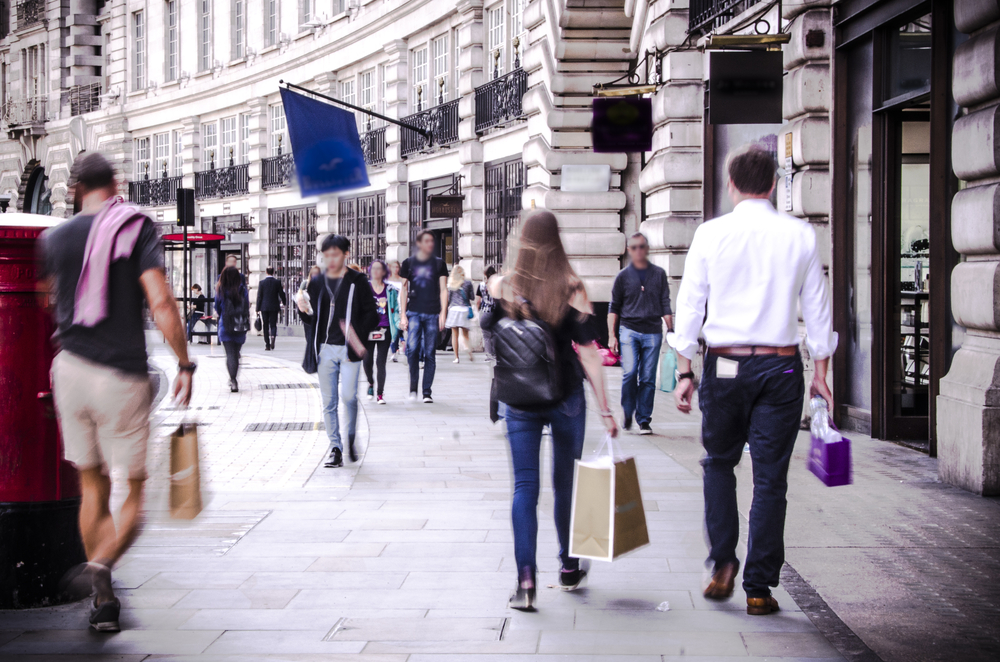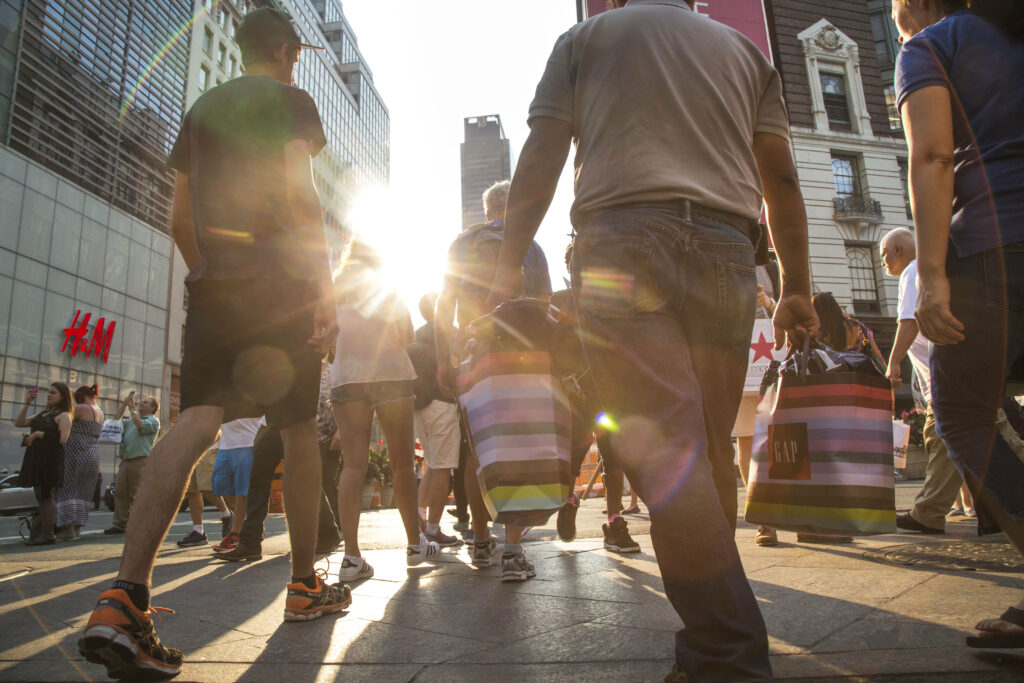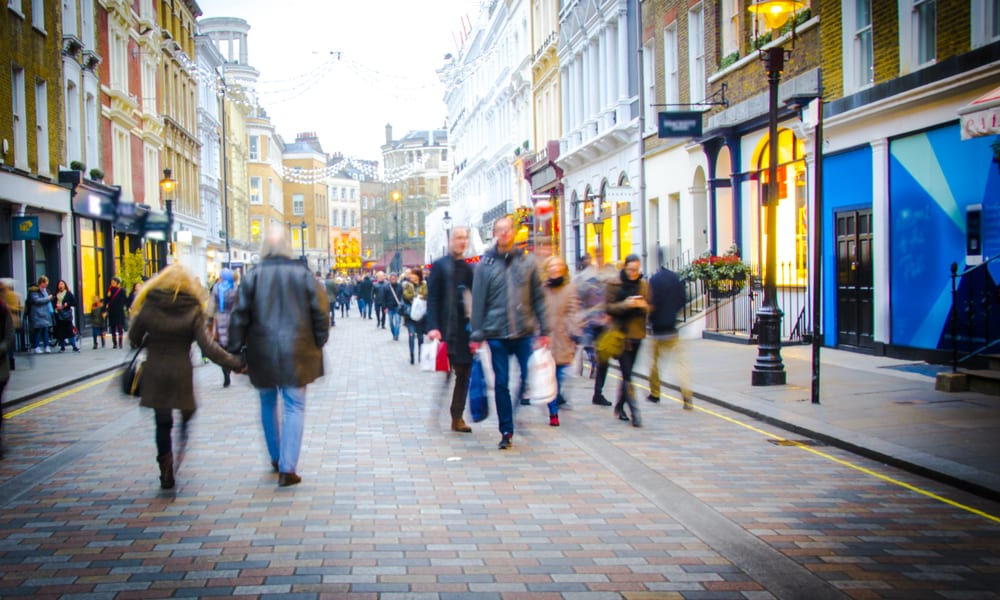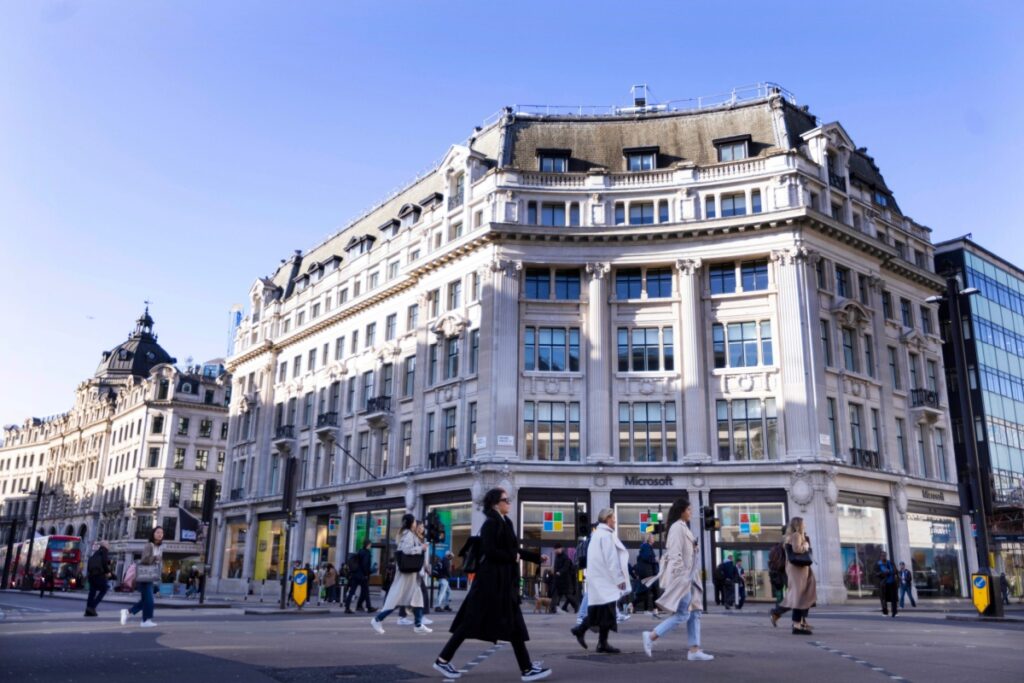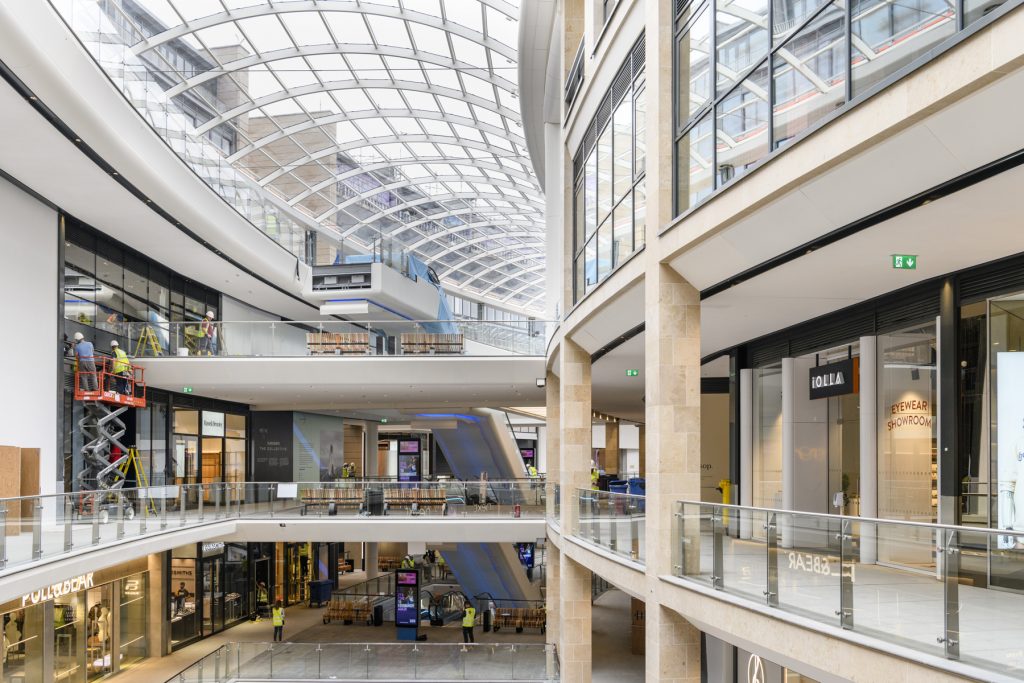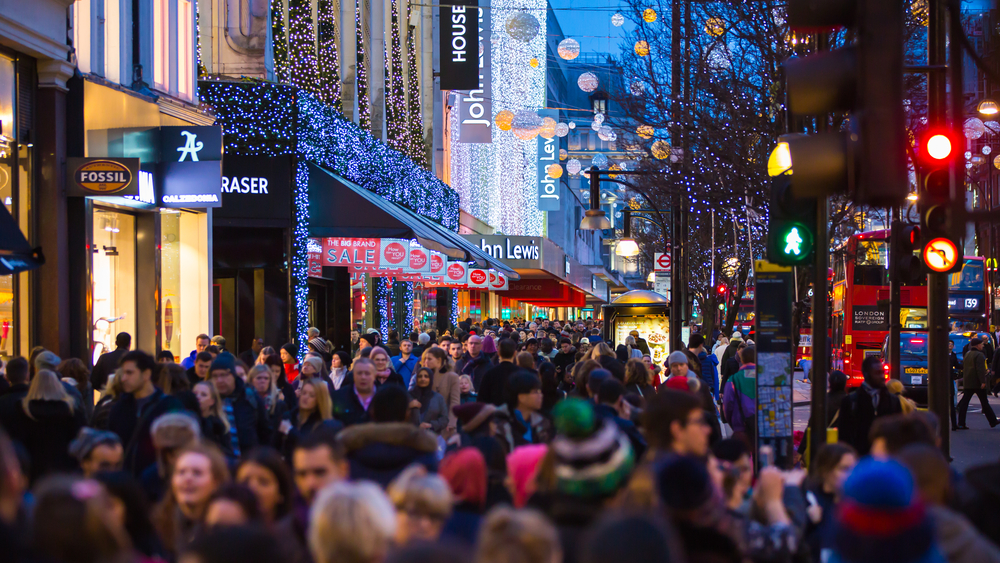// The number of customers heading into UK shops was significantly down in July compared to the same month before the pandemic
// UK retail footfall fell 14.2% over the pre-Covid comparative period in 2019
The number of people visiting UK shops was well below pre-pandemic levels in July as record heat and the rising cost-of-living kept shoppers at home.
UK retail footfall fell 14.2% over the pre-Covid comparative period in 2019 according to the BRC-Sensormatic IQ Footfall Monitor for July 2022.
That’s 3.7 percentage points worse than in June 2022, and below the three-month average decline of 12.3%.
READ MORE:
- July UK footfall shows “north-south divide emerging” amid the burden of inflation
- UK footfall rises following rebound from extreme heatwave
- Footfall set to remain below 2019 for foreseeable future despite Jubilee bank holiday boost
Footfall on high streets dropped 15.9%, which was two percentage points worse than last month’s rate, and worse than the three-month average decline of 14.4%.
While retail parks saw footfall decrease 9.1% – one percentage point worse than last month’s rate and worse than the three-month average decline of 8.2%.
Shopping centre footfall declined 24.8% – 0.7 percentage points worse than last month, but above the three-month average decline of 25.1%.
British Retail Consortium chief executive Helen Dickinson said: “Following four months of steady progress, UK footfall stalled in July as record temperatures and the rising cost-of-living deterred people from visiting local shops,”
“There was some respite in the last week of July, ahead of the women’s Euros finals, as people stocked up on food and drink to watch the Lionesses bring footfall home.
“Meanwhile, footfall in Northern Ireland bucked the UK trend and improved slightly on the previous month.”
Across the UK, Northern Ireland saw the shallowest footfall decline of all nations at 12.3%, followed by England at 14.0% and Wales at 15.8%. While Scotland again saw the steepest decline at 16.5%.
Industrial disputes also affected footfall, said analysts.
Sensormatic retail consultant Andy Sumpter, said: “July delivered a smorgasbord of summer disruption for retailers, as the ongoing rail strikes derailed footfall gains and the UK’s record-breaking heatwave saw shoppers shun the shops for several days as the temperatures soared.
“Add to this the ongoing cautiousness we’re seeing among the cost-of-living consumer, it made for a bumpy month for shopper traffic performance.
Dickinson added: “A new prime minister offers a renewed opportunity for the Conservative Party to meet its 2019 pledge for fundamental reform of the broken business rates system,”
“The first step is scrapping the ‘downwards phasing’ part of transitional relief – a flawed system that prevents retailers paying what they owe, and instead would force them to overpay more than £1bn between 2023 and 2026.
“This money could be better used to help limit price rises for customers, curb the rising cost-of-living and invest in the vitality of towns and cities around the country.”
Click here to sign up to Retail Gazette‘s free daily email newsletter

